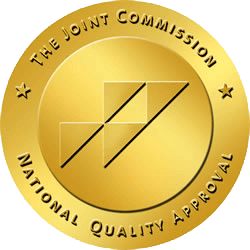Drugs and alcohol can cause both physical and psychological addictions, which both require treatment to recover from fully. Beyond psychoactive substances, certain behaviors, like shopping or video games, can cause process addiction to develop. But what is a process addiction, and how is it treated? Addiction is a powerful progressive disease that doesn’t discriminate. While certain factors, like genetics, increases the chances of developing an addiction, anyone can suffer a substance abuse disorder. Addiction is a chronic condition that can damage your physical and emotional health, relationships, and even lead to an early death.
What is Process Addiction?
So, what is process addiction? A process addiction causes you to compulsively engage in negative behavior, like using drugs or gambling, even if you want to stop or deal with harmful consequences. It can occur alongside a physical one, which can make it especially difficult to recover without help. Another important thing to remember when asking what process addiction is is that even if you aren’t physically dependent on a substance or behavior, you can still experience severe symptoms. A process addiction can cause changes to your brain chemistry, judgment, and decision-making centers. When you engage in a behavior or use a psychoactive substance, your brain associates it with pleasure because it causes a rush of pleasurable neurotransmitters. Once this association is made, your pleasure and reward center rewards the negative behavior and punishes abstinence. Anything that reminds you of your substance of choice or addictive behavior can induce strong cravings that make it hard to stop without completing a process addiction treatment program. Triggers can be almost anything, which means that it can be tough to navigate recovery without learning how to cope with triggers and cravings. Some of the most common process addictions involve:
- Shopping
- Gambling
- Sex
- Video Games
- Social media
- Substances that don’t result in physical dependence, such as marijuana and crack cocaine
How a Process Addiction is Treated
Like physical addictions, process addictions require treatment to recover. Treatment for a process addiction includes a combination of evidence-based and holistic therapies. Evidence-based treatments are therapies that have proven to work with past patients following extensive research. Some of the most effective evidence-based treatments include cognitive and dialectical behavioral therapy, which help you learn how to identify and change negative thoughts, feelings, and behaviors. During treatment, you will also learn how to deal with triggers healthily. Since relapse is a major threat during the early stages of recovery, learning how to handle things like negative emotions, significant life changes, and stress is quintessential to beating a process addiction. Holistic therapies focus on treating your body, mind, and spirit in unison while also providing practical coping strategies. Evidence-based and holistic therapies are routinely combined during treatment, which ensures that you are provided with the skills and tools necessary to recover. Another benefit of attending a treatment center is it helps you answer, “What is process addiction?” Also, it provides you with a safe and healthy environment to begin recovery. Inpatient and outpatient programs offer you the ability to have a confidential and understanding place to share and express your thoughts and feelings, which can help improve your self-awareness and communication skills.
Reach Out for Help Today
If you are wondering what a process addiction is, chances are you are exhibiting signs of psychological dependency. Reaching out for help is the first step in your recovery journey. Treatment offers you the support, guidance, and compassion you need to recover. Contact Destinations for Teens today at 877.466.0620 to find out more about our treatment programs and your recovery options. Sources: Grant, Jon, et al., Introduction to Behavioral Addictions, American Journal of Drug and Alcohol Abuse, September 2010, www.ncbi.nlm.nih.gov/pmc/articles/PMC3164585/


